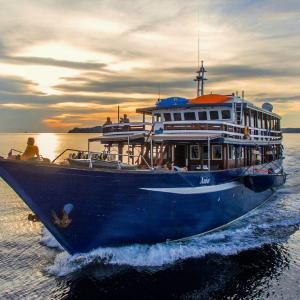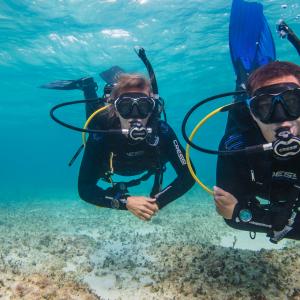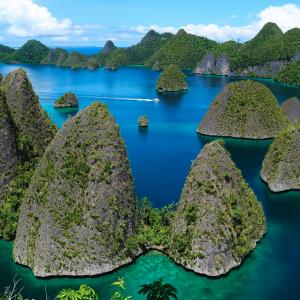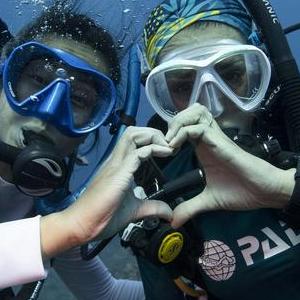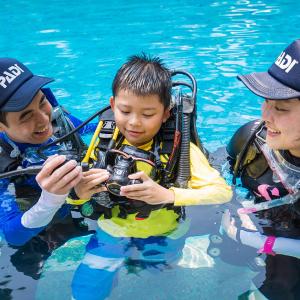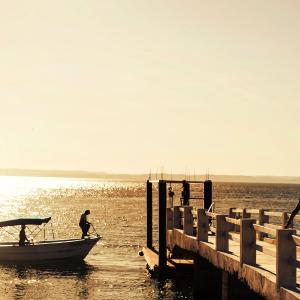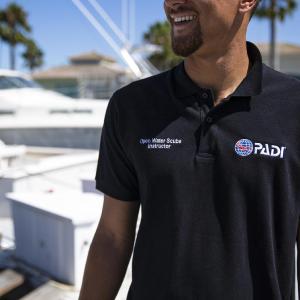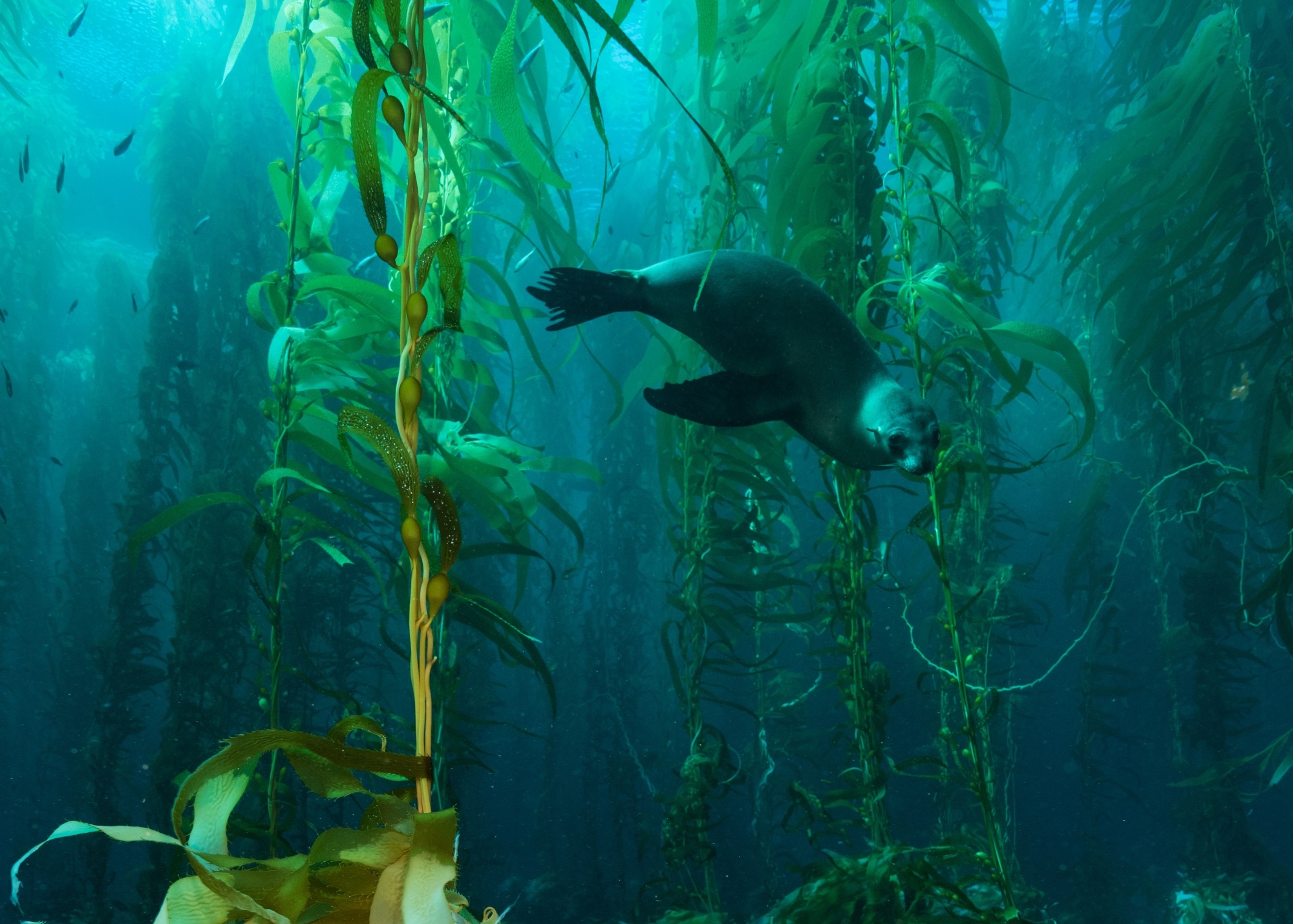
Aquarius Dive Shop
2022 PADI AWARE Grantee
Practicing kelp restoration methods, and protection measures, including urchin relocation, and removals.
Kelp is a fast-growing seaweed that acts as a great blue carbon sink because the plant uses carbon to build its new cells as it grows. The plant grows into underwater forests that sway in the surge, providing a suite of ecosystem services for many marine animals that live in and amongst the kelp. For humans, kelp provides homes for fished species, harbors biodiversity, and sequesters carbon, said Aquarius Dive Shop's Brian Bennett.
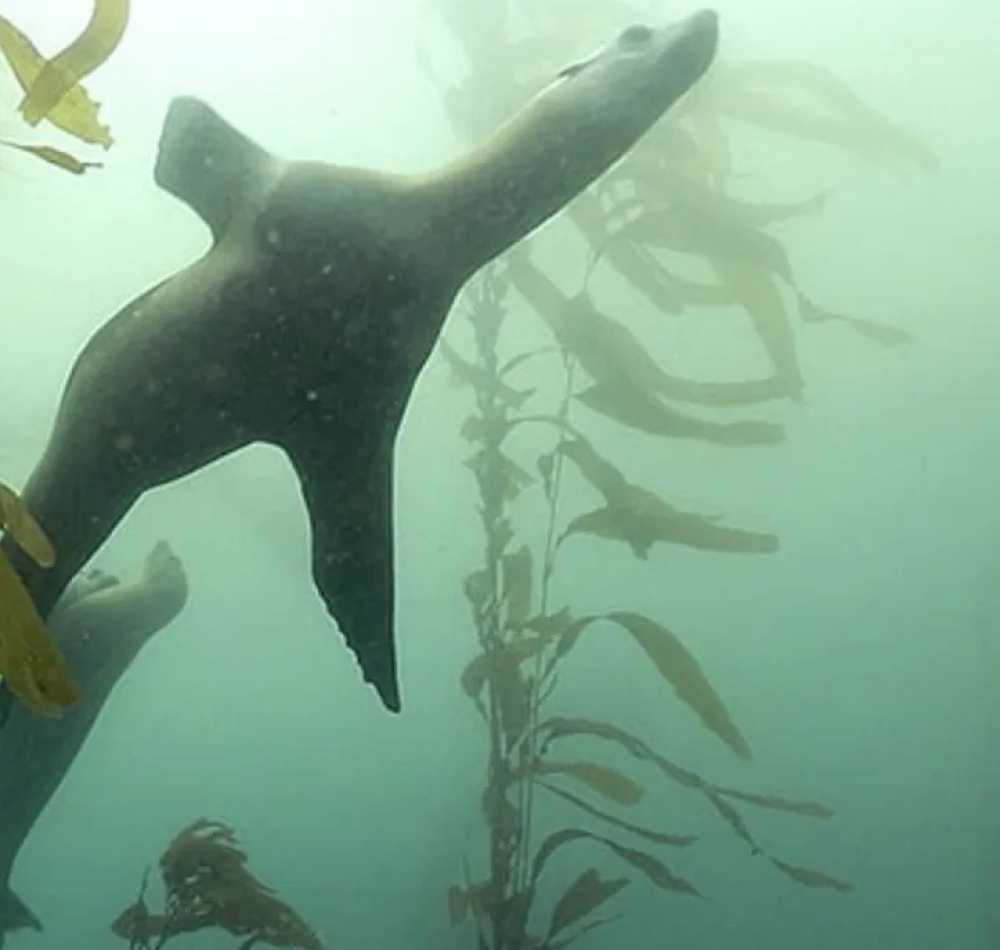
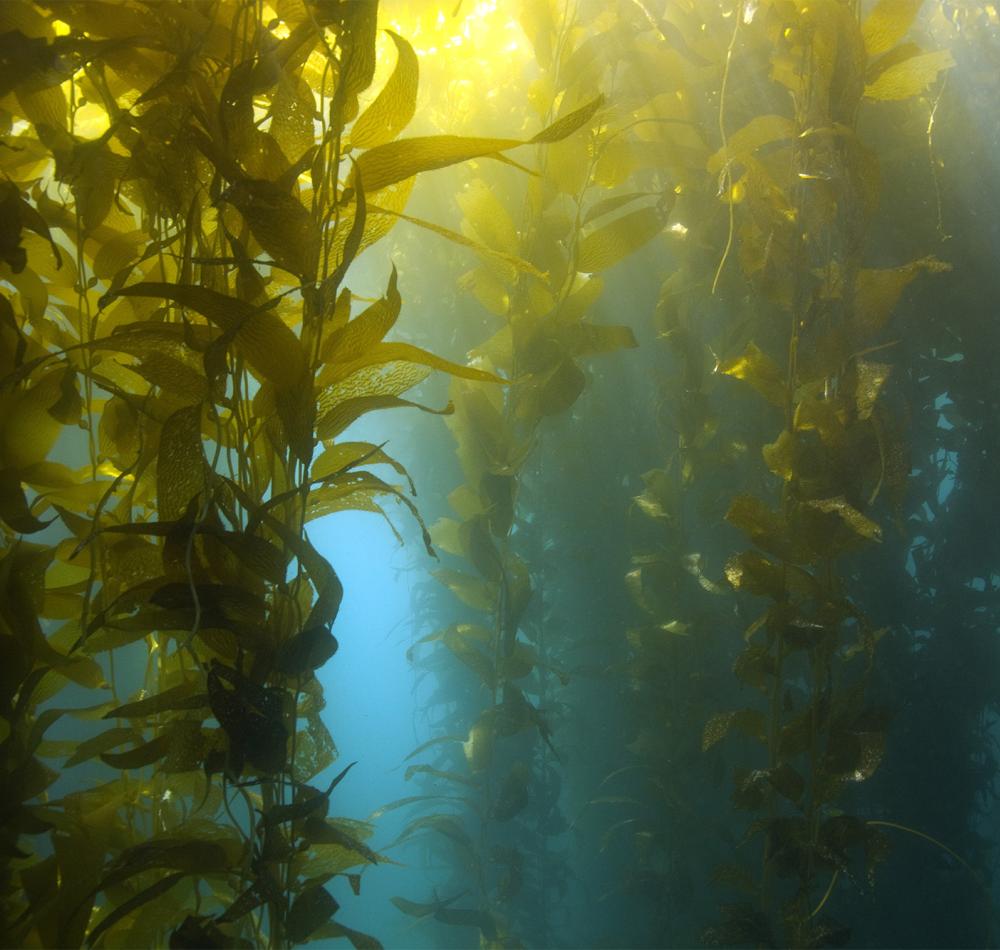
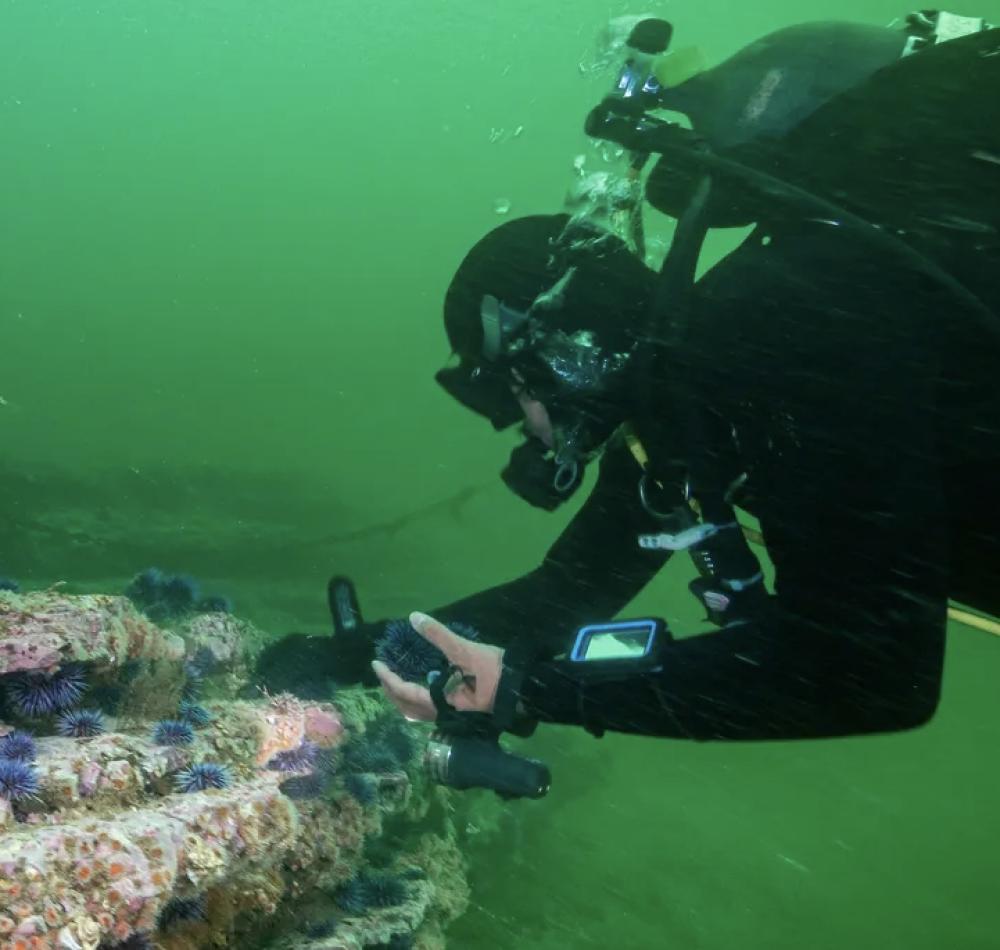
Climate change is the single most urgent challenge facing our planet. To help in the fight, Aquarius Dive Shop wants to send help – via kelp!
“Our kelp forests are vital to survival on the planet,” he said. “My passion is to share my love for diving in California’s lush kelp forests with divers from around the world.”
Thanks to PADI AWARE Foundation Community Grant funding, Aquarius has been able to protect small, resilient patches of kelp that have been able to withstand ocean warming in Monterey, California. How? By mobilizing divers to relocate sea urchins that predate on the kelp to allow these patches to shed spores and maintain the genetic diversity of the kelps. The funding allowed them to buy much-needed safety equipment and supplies and to cover staff travel expenses.
The project takes place in Monterey’s beautiful kelp forests. The goal is for recreational divers to help reduce urchin densities to <2 urchins/m2 on 1-2 acres of the reef during the project. Using proper relocation or culling techniques, these divers are able to reduce urchin populations without significant bycatch, damage to the reef structure, and disturbance to marine animals.
“Our project aims to get divers into the water to experience the difference between diving in species-rich, healthy kelp forest ecosystems and sea urchin barren habitats with diminished species richness,” Bennett said. His organization will log the dives that PADI divers make in these two habitats.
The funding will also allow Aquarius to test of different rehabilitation and protection methods for California’s kelp beds, ranging from invasive species removal to replanting and growing new kelp.
“Success will be increasing awareness of the health of kelp forest ecosystems and teaching divers about Giant and Bull Kelp forests in California,” he added. “For me, it is important to give back and protect habitats and species not only for our survival but also for future generations. I cannot sit by idly and not work to protect this vulnerable kelp ecosystem that provides a foundation for so many amazing marine animals and algae.”
Bennett hopes that recreational divers in his project will be able to adequately collect and report biological data to state and federal agencies to assess the effectiveness of their efforts. He knows it’s not too late, and that the ocean’s regenerative power is remarkable if we just give it the chance.
“As divers working together we can see what needs to be done and we can accomplish so much,” he concluded.
Want to see more of Aquarius Dive Shop in action?
You can follow along with Aquarius Dive Shop and their kelp restoration project on their website, Instagram, Facebook or on https://www.padi.com/aware.

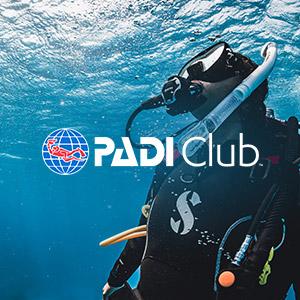
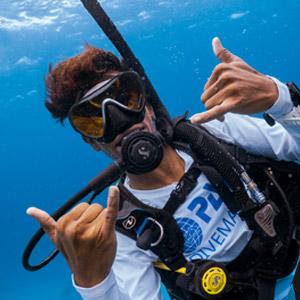

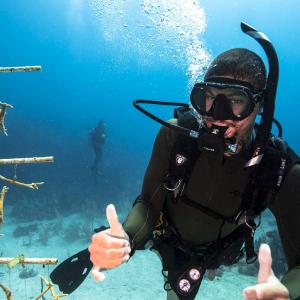
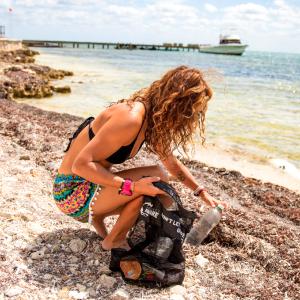
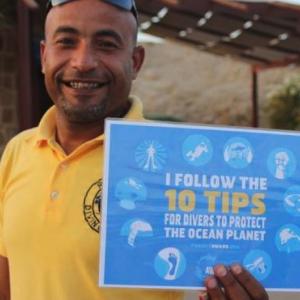
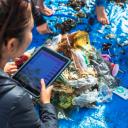 Detriti marini
Detriti marini
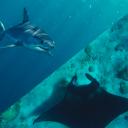 Protezione di squali e razze
Protezione di squali e razze
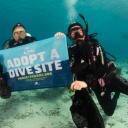 Adotta un sito d'immersione
Adotta un sito d'immersione

